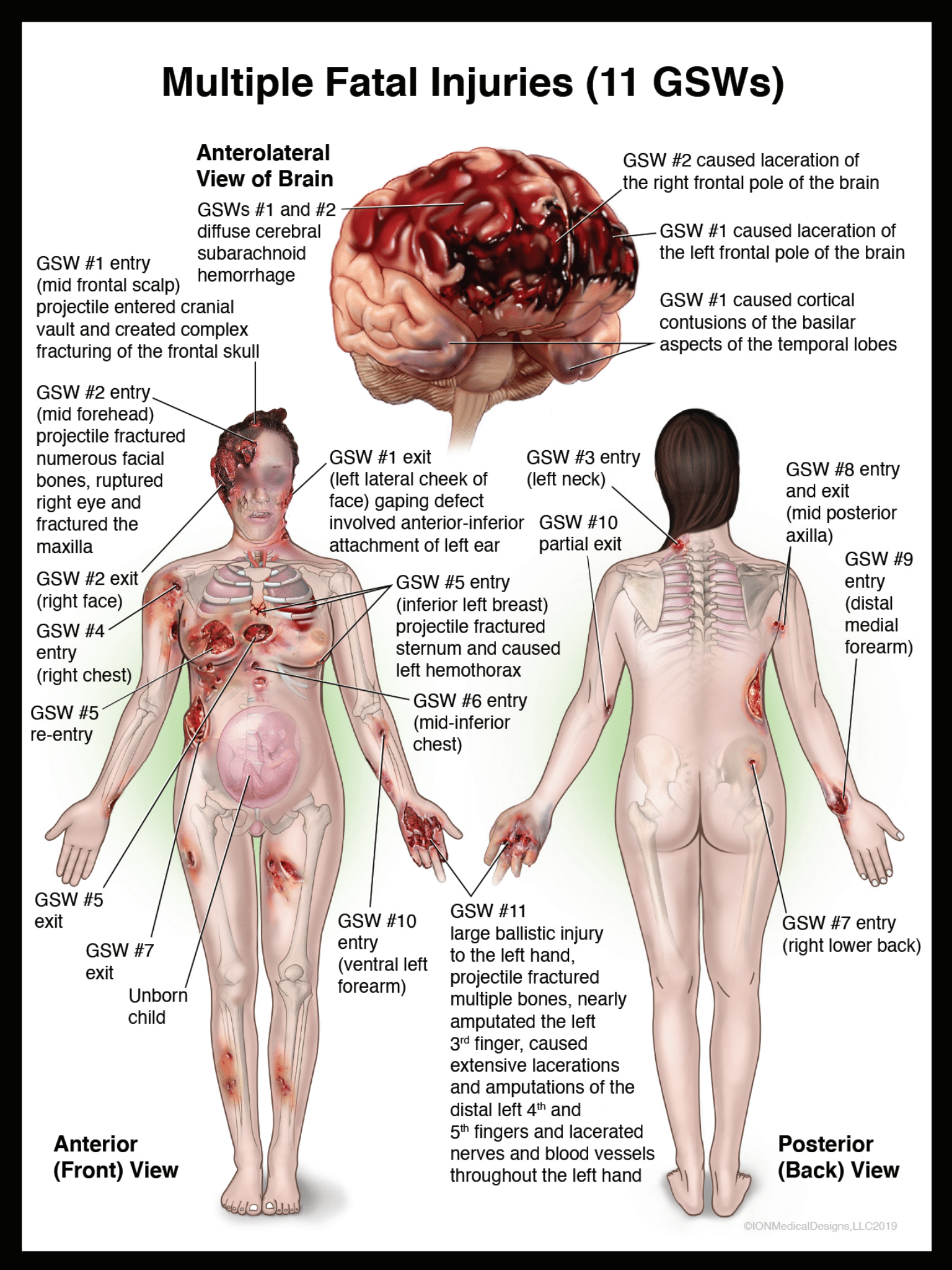Blog.

A hot topic in the world right now that has been used successfully in many fields is artificial intelligence (AI). AI is an intelligent agent able to achieve a goal defined by humans. Meaning you teach the computer by repetition and explanation. For instance, with the new AI-powered stethoscope, the developers fed the AI machines thousands of heart sounds, distinguishing normal from those that may have a problem such as a murmur. With the repetition the computer learns to distinguish the heart sounds on its own so the stethoscope can screen for heart disease in 15 seconds. As AI relates to art and medical illustration, currently there are three AI platforms used Midjourney AI, Stable Diffusion AI, and, Dall-E AI. AI generators can produce beautifully rendered pieces of art within seconds. They have not yet anyways mastered anatomy and medical/forensic art or surgical illustration. They are restricted in what they are permitted to learn and an abundance of medical terminology has been banned from their learning capabilities. A few of the words/terms including blood, bloodshot, bruises, laceration, surgery, wound, pelvis and many more anatomical and procedural terms. So, it may be awhile if ever that the technology is perfected enough for AI to create accurate anatomical illustrations or surgical procedures. To create an image in AI you can utilize ChatGPT to create prompts that are then input into Midjourney AI for the image generation. This helps generate prompts for you that can often result in more refined image results. You can upload an image as a prompt to give the computer an idea of what you are thinking and as a starting block. People may think our world will soon be crawling with robots however, currently AI is being used for fast production and efficient working. In the art world AI can create concepts and ideas from your head to work from using text prompts from ChatGPT. A starting block so to speak! Just for fun I rendered a few images using Imagine Art and Midjourney AI platforms. I left the prompts in the screenshots so you can see what the computer came up with from my thoughts.

ION Medical Designs worked in collaboration with the University of Colorado School of Medicine to create an animation about the mAb (monoclonal antibody) treatment for COVID-19. People who are immunocompromised and/ or older can greatly benefit from the intravenous injection of antibodies! To see how this treatment works, click on the Youtube link. The animation will have audio narration in the near future - subscribe to our channel to be notified when the audio version and future projects are released! #animation #collaboration #covid #medicine #medicalillustration #publichealth #Universityofcoloradoschoolofmedicine #ionmedicaldesigns #monoclonalantibodies #mAb

Case Study One – Mass Shooting Sutherland Springs Church Massacre Law Firms – Justin Demerath of O’Hanlon, Demerath & Castillo, April Strahan of The Ammons Law Firm, Brett Reynolds & Associates, Thomas J. Henry Law, Jamal K. Alsaffar National Trial Law, Tom Jacob National Trial Law, Marion M. Reilly of Hillard Martinez Gonzales LLP In November of 2017 Devon Patrick Kelly, dressed in black tactical gear and armed with a Ruger AR-556 semi-automatic rifle open fired outside the First Baptist Church in Sutherland Springs, Texas killing two people outside of the church. He then entered through the right-side door of the church where the worshippers were attending their regular Sunday service yelling “Everybody dies, motherfuckers” as he walked up and down the aisle shooting. He was walking around killing people individually. A massacre that left twenty-six people dead and 20 injured. Many of the victims were children. Governor Greg Abbott stated that this was the worst mass shooting in the state’s history. Kelly was confronted by and traded fire with citizen Stephen Willeford, a local resident and former firearms instructor who was armed. Willeford, took cover behind a truck across the street from the church and fired at Kelley twice, once in the leg and once in the upper left torso. Willeford and another citizen Johnnie Langendorff pursued Kelley in a high-speed chase. Kelley eventually lost control of his vehicle and ended up in a ditch. He died of a self-inflicted gunshot wound to the head. Kelley was a former U.S. Airforce member who served from 2010 to 2014. Kelley previously served in logistics readiness at Holloman Air Force Base in New Mexico until his discharge in 2014, he received several awards during his time with the Air Force. He was responsible for moving passengers, cargo, and personal property in military transportation. Kelley was charged with multiple accounts of domestic violence assaults on his first wife and her child. Kelley physically assaulted his stepson by pushing him down, shaking him and fracturing his skull, causing a severe hematoma. Kelley pleaded guilty to assaulting his ex-wife and son and received a bad conduct discharge and reduction in rank and 12 months of confinement from the United States Airforce. The United States Air Force Stated that the domestic violence case was a general court martial, the most serious level of military trial proceedings, reserved for more serious crimes such as felonies in civilian jurisdictions. Kelley received a bad conduct discharge not a dishonorable discharge which would have prohibited him from purchasing a firearm. Federal law in Texas prohibits those convicted of a domestic violence to purchase firearms. The military is responsible for reporting those charges to the FBI. In hopes that those abusers don’t purchase firearms and can carry sentences of more than a year in confinement. The lawsuit was regarding this issue of not reporting Kelley to the FBI, there for he was not banned from buying a gun. Although the argument could be made that he could’ve purchased a gun in the black market. (reason for appeal) His friends and family had noticed him getting dark and he had depressing and disturbing social media posts leading up to the massacre. He posted a picture of his AR -15 with the caption “She’s a Bad Bitch” underneath. His motive for the shooting was a dispute with his mother-in-law. Ironically, she was not at the church on that day.






